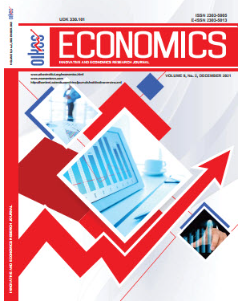IMPLICATIONS OF EMOTIONAL INTELLIGENCE IN HUMAN RESOURCE MANAGEMENT
DOI:
https://doi.org/10.2478/eoik-2021-0016Abstract
This article reflects an applied theoretical study that addresses the relationship
between emotional intelligence, occupational stress, motivation and job
satisfaction in the employees of a machine tool manufacturer.Emotional
intelligence is very important and indispensable for managers in Romanian
institutions, leaders wanting all employees to fulfill their obligations and
responsibilities in a pleasant environment, without stress, to have effective
productivity. The aim of the paper is to manage emotions, stress and time, follow
rules and is to observe the relationship between EQ and work management.
Emotional states must be aware, understood and controlled to achieve our
goals and purpose.It describes the basic concepts, basic psychological models,
purpose, objective, research hypothesis, methodology, tools for measuring
emotional intelligence and job satisfaction.
The main objective highlights the emotional intelligence of the people involved
in the organization, an objective applied at individual and group level that leads
to increasing the quality of production.
Observation, interview, questionnaire, analysis and data synthesis were used as
research methods. The research has 4 hypotheses that have been demonstrated.
Statistical analyzes were performed using the SPSS 20 program, focusing on
descriptive statistics, percentage frequency analysis, correlations. Emotional
intelligence is indispensable in leadership positions, and job satisfaction is
directly associated with productivity and efficiency in an organization.
